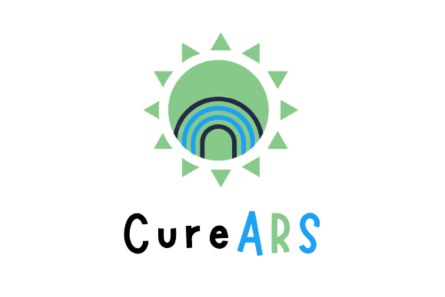CureARS
Cycle 3
Mitochondrial (mt) Aminoacyl tRNA Synthetase (ARS) genes are essential for the cells in the body to make energy within the mitochondria. Inherited mutations in these genes cause ultra-rare types of Mitochondrial Disease (Mito). Just as there are different types of cancers, there are many different types of Mitochondrial Disease. There are over 300 genes that cause different types of Mito, and there are 20 Mito ARS genes.
Last updated 04/30/2025
Clinical
Disease Class
Inherited metabolic disorder
Body Systems
Cardiovascular / Circulatory
Digestive
Endocrine
Metabolic
Muscular / Skeletal
Nervous / Sensory
Renal / Urinary / Excretory
Reproductive
Respiratory
Organs
Brain
Ears
Esophagus
Eyes
Heart
Intestines
Kidneys
Liver
Lungs
Muscles
Ovaries
Spinal cord
Known Genetic Link
Yes, one or more genes directly cause the condition
causative_genes
AARS2
CARS2
DARS2
EARS2
FARS2
GARS
HARS2
IARS2
KARS
LARS2
MARS2
NARS2
PARS2
QARS
RARS2
SARS2
TARS2
VARS2
WARS2
YARS2
contributory_genes
None specified / unknown
Type of Inheritance
Autosomal recessive
Newborn Screening
No
Disease Mechanism(s)
Inherited metabolic disorder
Age of Onset
Adolescence (12-17)
Adulthood (age 18-64)
Early childhood (age 1+-5)
Elderly (age 65+)
Infancy (age 0-1)
Middle childhood (6-11)
Prebirth
Average Age at Diagnosis
Adulthood (age 18-64)
Early childhood (age 1+-5)
Life Expectancy
Adolescence (12-17)
Adulthood (age 18-64)
Early childhood (age 1+-5)
Elderly (age 65+)
Infancy (age 0-1)
Middle childhood (6-11)
Affected Sex(es)
Female
Male
National Prevalence
Unknown
Global Prevalence
10000+
National Incidence
Unknown
Global Incidence
Unknown
Symptoms / Phenotypes
dementia
developmental delay
encephalopathy
hearing loss / hearing impairment
hypotonia
leukodystrophy
movement disorders / ataxia / tremor
seizures / epilepsy
vision problems
Biomarkers
Diagnostic
· gdf15, electron transport test, proteomics biomarker
Existing Therapies
Complementary and Alternative treatments
· mito cocktail (vast options)
Expanded access (Compassionate Use)
Off-Label Drug Use
Organizational & Research
Cell Lines
Fibroblasts
Cell Lines, Institution
Children’s Hospital of Philadelphia (CHOP)
Colorado Children's
Cell Lines, Involvement
Funded
Cell Lines, share
Some of our cell lines are freely available
Disease Model
C. elegans
Zebrafish
Disease Model, Involvement
Consulted
Designed
Disease Model, share
Some of our disease models are freely available
Clinical Trial Role
Not involved
Biobank, Institution
None
Center of Excellence, Institution
Children’s Hospital of Philadelphia (CHOP)
Colorado Children's
Center of Excellence, Involvement
Funded
Registry
Yes, we have a registry that we created
Data Collected, Registry
Genetic data
Longitudinal natural history data
Medication usage
Patient contact info
Patient-reported data
Data Entered by, Registry
Patients
Platform, Registry
IAMRARE
Natural History Study
No, we do not have a natural history study, but we plan to create or collaborate on one
FDA Patient Listening Session
No
FDA Patient-Focused Drug Development (PFDD) Program
No
ICD Codes
Yes, we have an ICD-10 code specific to our exact disease
Diagnostic Guidelines
No
Science Advisory Board Policies
No policies
Research Network Policies
Has CRN and willing to share policies
Research Roadmap
Yes we have a Research Roadmap, and will share policies
International Chapters
None
International Partners
None
